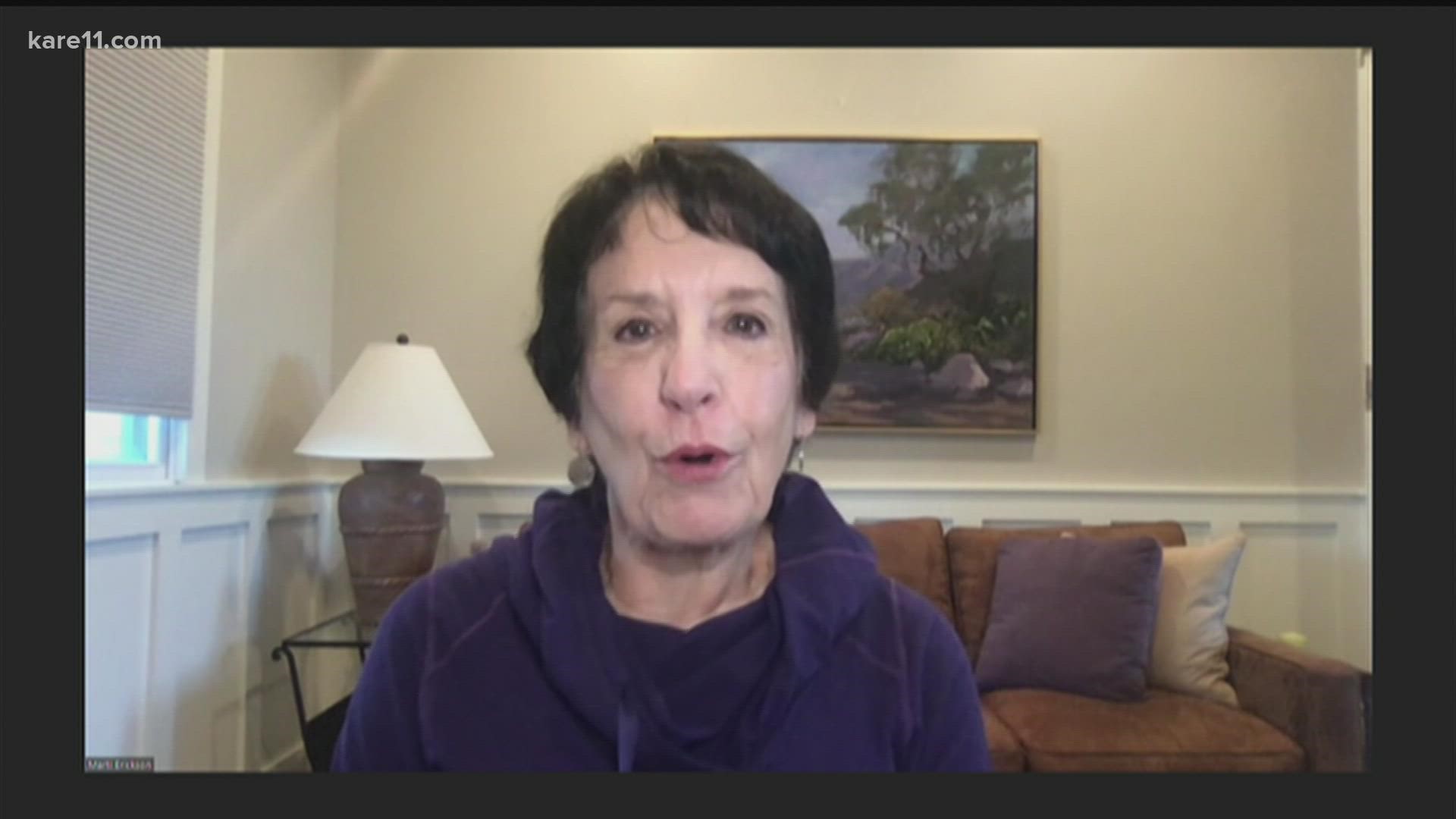GOLDEN VALLEY, Minn. — Recent psychological studies show that an unprecedented number of both children and adults today feel chronically overwhelmed.
In part, this is because people have put ourselves at the mercy of others, feeling compelled to say yes to every invitation or request that comes their way – and to respond to every ping and beep from our devices as if our life depended on it.
We have lost our “agency,” the ability to be self-advocates and to make wise decisions that are consistent with the life we want to live.
However, agency begins to develop early in childhood and parents play a key role in helping children build this important quality.
Dr. Marti Erickson, a developmental psychologist and co-host of Mom Enough, joins KARE 11 Saturday to talk about what agency is, why it’s important, and how we can nurture it in our children at every age – hopefully strengthening our own agency at the same time.
Background: What is agency and why is it important?
Agency is the ability to make wise decisions and put those decisions into actions that are consistent with the life we want to live. And it is a sense of self-efficacy, the belief that you can affect an outcome, that you have some power over what happens.
Agency is essential for being a leader. It is also essential for good emotional health and good relationships. If you have agency, you understand that you can manage your feelings and that what you say and do has an influence on the people and spaces around you. You can bring up original ideas and initiate things rather than waiting for others to direct you or demand something of you.
When supporting agency in our children, we need to strike an appropriate balance between a child’s right to have a voice in things that affect them and parental authority. This balance changes gradually as children mature and learn good values and decision-making skills.
Four practical ways to promote your child’s development of agency
Listen closely to what children say, both in words and nonverbal cues
Reflect back their feelings, showing that you are paying attention. Empathize!
Help them figure out what they can control within reasonable limits
For example, they can choose refreshments for a playdate, one healthy snack and one sweet treat. They can choose a movie for family movie-night, as long as it’s within a certain rating category.
Identify values they can use in making difficult decisions
A couple of situational examples for kids of different ages include around values of honoring prior commitments, honesty, respect for others’ feelings, keeping a social schedule that allows adequate time for homework and a good night’s sleep.
Ask, don’t tell, them how they should proceed
Use open-ended questions to ask what their options are? What the consequences might be if they do this instead of that? How others would feel under different outcomes? How they would feel?
The Mom Enough podcast on Monday features Dr. Anthony Rao, author of The Power of Agency. Mom Enough also provides sheet that includes a set of hypothetical dilemmas that will help you learn more about how to support agency in your children. Visit www.momenough.com for both the podcast and the free resource sheet.
Watch more KARE11 Saturday:
Watch the latest coverage from KARE11 Saturday in our YouTube playlist:

